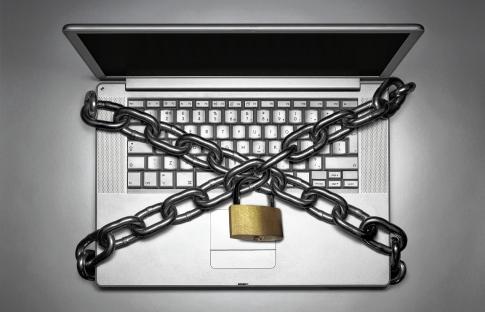House Judiciary Committee Opts to Delay SOPA Vote
Is this the sound of a bullet being dodged?

We're not out of the woods yet, but thanks to an inability to come to an agreement over a provision related to Internet infrastructure, a vote on the odious Stop Online Piracy Act, or SOPA, has been delayed indefinitely. Due to ongoing disagreement over certain aspects of SOPA, the House Judiciary Committee opted not to bring it to a full House vote this afternoon as previously scheduled, instead adjourning without setting a new date to resume the discussion.
The delay came as a surprise, as it was considered all but certain to be presented for a full house vote after a lengthy debate on Thursday that lasted 11 hours. The motion twas brought by Representative Jason Chaffetz (R-Utah), who asked for a delay so that experts can be brought in to discuss the bill further. The member of the political party devoted to Small Government and Liberty isn't concerned about any abrogation of constitutional rights for ordinary citizens. At issue was a provision that would empower the US Attorney General to order sweeping changes to Internet infrastructure. The legislation requires Internet service providers to alter DNS records in order to prevent users from being able to locate or even visit a suspect site; essentially, to falsify Internet data. If ISPs resist such a requirement, they would be forced instead to use other methods to block US citizen access to such sites. The worry here is that forcing changes to Intent-domain naming system will in fact increase security risks.
SOPA would also empower Copyright holders to obtain a court order against websites accused of infringing on copyright claims without first notifying the suspected site of their intent. This would allow corporate entities to enact dire penalties, including blocking sites from IPs or even delisting an accused site from browsers, without even cursory due process restrictions. It is in essence the granting of near-legal authority to nongovernmental entities, and would essentially kill the Internet in the United States as it currently operates. That SOPA, and its equally terrible Senate counterpart, the ridiculously named "Preventing Real Online Threats to Economic Creativity and Theft of Intellectual Property Act of 2011", (alternately the PROTECT IP Act or simply PIPA,) would place American citizens under a restrictive online environment essentialy identical to the one China imposes on its own citizens, and further that the US Government has been engaged in a very public argument with China over that framework, are ironies lost on the current congress.
Despite an outcry from citizens and prominent tech industry experts - including a scathing open letter released today by 83 Internet Engineers and inventors - the bill inexplicably retains solid support in the House of Representatives. However, As the U.S. Congress is set to begin its holiday recess, this delay guarantees that SOPA (and PIPA) will not pass in 2011. Though the discussion is certain to pick up shortly after Congress resumes in 2012, the delay affords opponents of the bill additional time to lobby Congressional members.
Sign up to get the BEST of Tom's Guide direct to your inbox.
Get instant access to breaking news, the hottest reviews, great deals and helpful tips.

Ross is a former contributing writer for Tom's Guide based in Los Angeles covering phones, tablets and home networking. Ross has previously written for Deadline, The Los Angeles Times and, most recently, TheWrap.
-
JohnnyLucky "SOPA would also empower Copyright holders to obtain a court order against websites accused of infringing on copyright claims without first notifying the suspected site of their intent."Reply
What are the legal requirements to obtain a court order? What legal information must be provided to a court? -
freggo JohnnyLucky"SOPA would also empower Copyright holders to obtain a court order against websites accused of infringing on copyright claims without first notifying the suspected site of their intent."What are the legal requirements to obtain a court order? What legal information must be provided to a court?Reply
You just move the website outside of the USA and you can use the court order as a wipe.
I'm not saying that it should be legal to put a 10,000 song collection online like that, but the RIAA has to accept the fact that their old business model is no longer working.
get with the times, come up with a reasonable alternative to illegal downloads and the problem will go away.
Ah yes, and stop telling us that a crappy MP3 is as good as the CD original, not to mention the 96KHz Multi-channel Studio master !
-
amk-aka-Phantom ReplyDespite an outcry from citizens and prominent tech industry experts - including a scathing open letter released today by 83 Internet Engineers and inventors - the bill inexplicably retains solid support in the House of Representatives.
Call that "democracy", a$$es?! People want one thing, government ignores the demand and does something else... -
RogueKitsune Hrmm If this bill passes I fore see a boom in public/private DNS's that are based outside of the US or Possibly some sort of crazy HOST file modifications.Reply -
Vladislaus freggoYou just move the website outside of the USA and you can use the court order as a wipe.I'm not saying that it should be legal to put a 10,000 song collection online like that, but the RIAA has to accept the fact that their old business model is no longer working.get with the times, come up with a reasonable alternative to illegal downloads and the problem will go away.Ah yes, and stop telling us that a crappy MP3 is as good as the CD original, not to mention the 96KHz Multi-channel Studio master !Moving the website out of the US would not matter. They don't seize the website, but the DNS. They redirect the DNS to another website. So all websites are affected, including foreign websites. That is, they're affected for residents of the USA.Reply -
giovanni86 We need to stand up, are rights here in the U.S are being taken from us each passing day, what we see on TV of uprising, thats exactly what we need to do. Its not that we have dictators, its the fact or system of democracy is broken, and the old fools in office are passing the dumbest things ever. Its time we revolted and went against our own government before they strip us of everything. Just my opinion but i am getting tired of this shit.Reply
